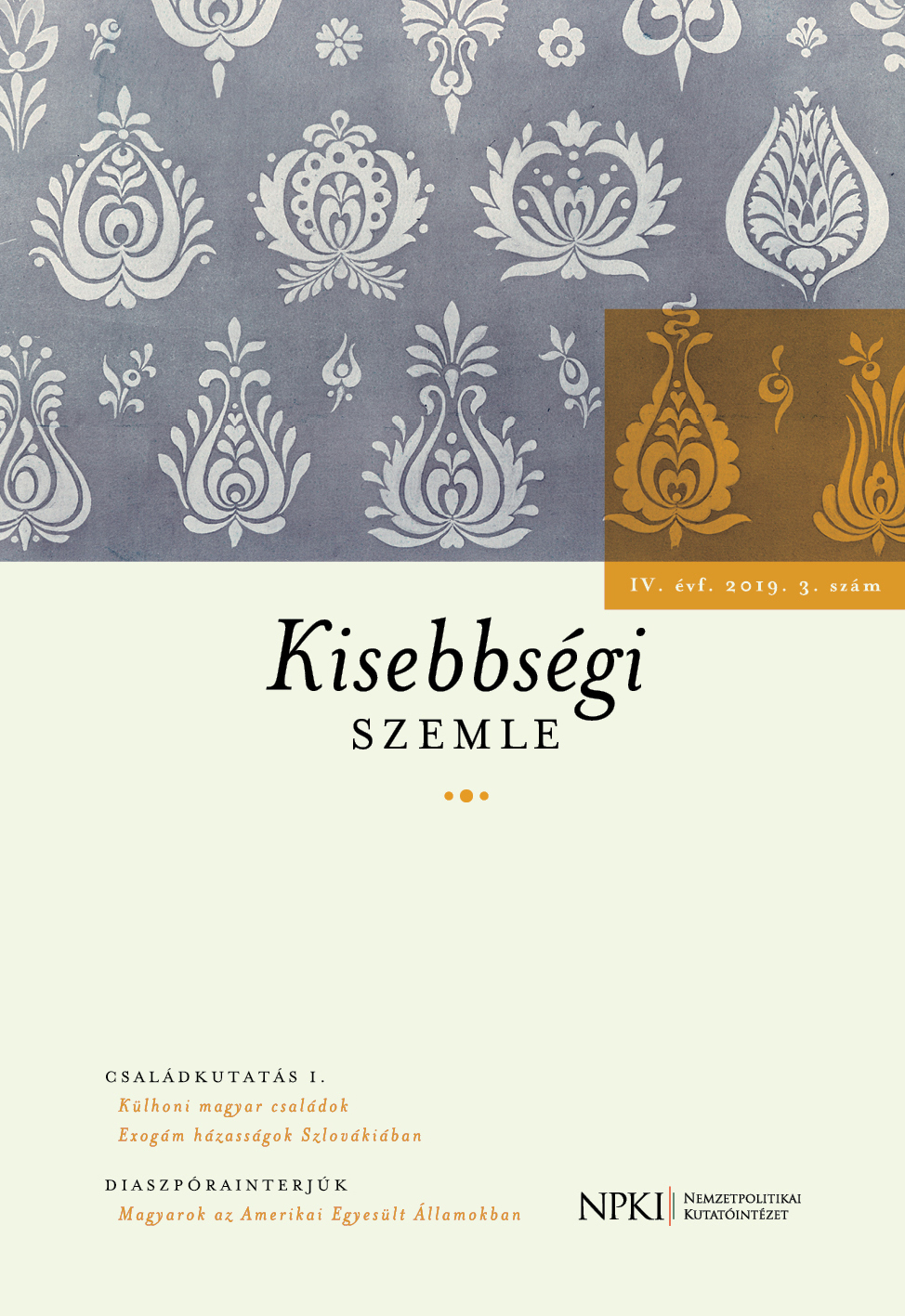Párkapcsolatok és gyermekvállalás a külhoni magyar családok körében
Couples and Childbearing among Hungarian Families Abroad
Results from a Representative Survey
Author(s): Tibor Papházi, Orsolya Béres, Edina Baraté, Mariann Trieb, András SzékelySubject(s): Politics / Political Sciences, Politics, Social Sciences, Sociology, Family and social welfare, Inter-Ethnic Relations, Ethnic Minorities Studies, Politics and Identity
Published by: Nemzetpolitikai Kutatóintézet
Keywords: Family;Childbearing behaviour;survey results;Hungarian minority;
Summary/Abstract: The Maria Kopp Institute for Demography and Families together with the Research Institute for Hungarian Communities Abroad conducted a survey among the Hungarian minorities in Subcarpathia (Ukraine), South-Slovakia (formerly Upper Hungary), Vojvodina (Serbia) and Transylvania(Romania), collecting 2576 valid responses. The aim of the questionnaire was to study the attitudes to relationships, marriage as well as to plans and facts about childbearing. The sample was representative for sexes, and other basic demographic variables as well; 50,4% of the respondents were men and 49,6% were women in the study. The survey results showed that the start of the first marriage is two years earlier than the so called ‘ideal age’ for marriage (women 25, men 28) for both sexes. The relationships (marriage or cohabitation) are more stable in the 35–45 age group than among younger couples. According to our respondents the most important preconditions for childbearing are right partner and the appropriate housing. It has been again verified that it is important for mothers to reconcile family needs and work responsibilities. The results show that the attitudes abroad are very similar to those inside Hungary.
Journal: Kisebbségi Szemle
- Issue Year: 4/2019
- Issue No: 3
- Page Range: 7-36
- Page Count: 30
- Language: Hungarian

